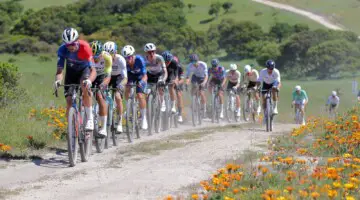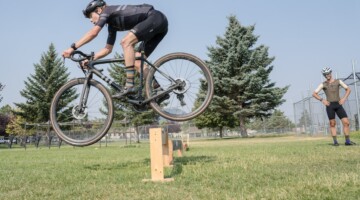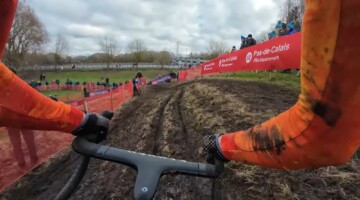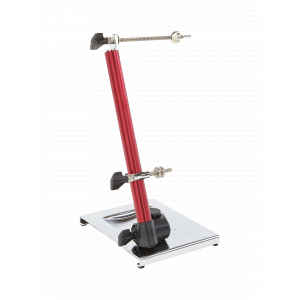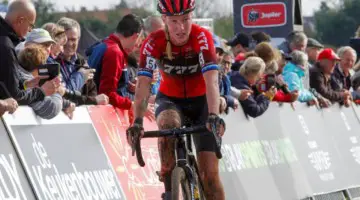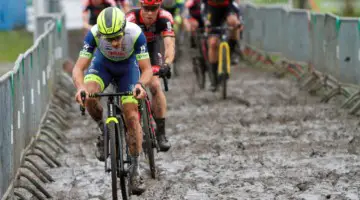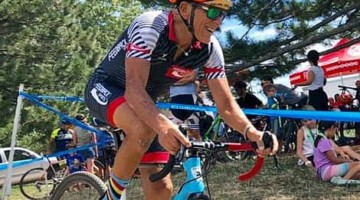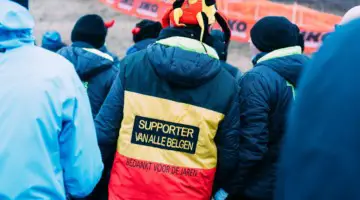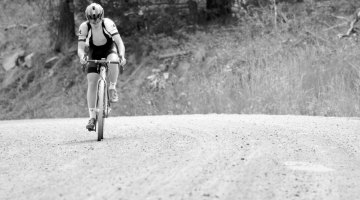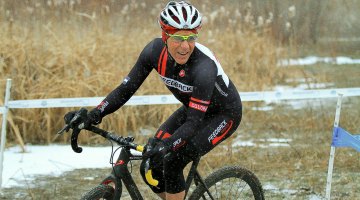Long-time CXM columnist Lee Waldman is back with an update, this time with not just one but two columns. Bonus! Let’s learn more about his philosophy behind cycling and his COVID-19 cycling adventures.
Why Cycle?
(Writer’s note: I started this piece a while back. It seems as if our world is changing by the hour and I hesitated even submitting this piece for publication. In the end, I decided that it’s relevant whether we are riding inside or outside.)
Those of you who regularly read my columns know my background as a teacher of reading and writing. I’ve also written about my path towards living a mindful life. This colors the way I look at ’cross, finding similarities in those seemingly disparate parts of life. There is a definite connection between what we do physically and intellectually.
One of the first lessons I teach my reading students is this: to understand the text, the reader needs a purpose for reading. Without purpose, it becomes extremely difficult to separate what’s important from what’s simply interesting. In reading, that skillset helps keep them from becoming overwhelmed with detail. Then they can more easily pull out the most important nuggets from a piece of text. “But what does this have to do with me as a cyclocross racer?” I hear you asking. I have an answer—no surprise there.
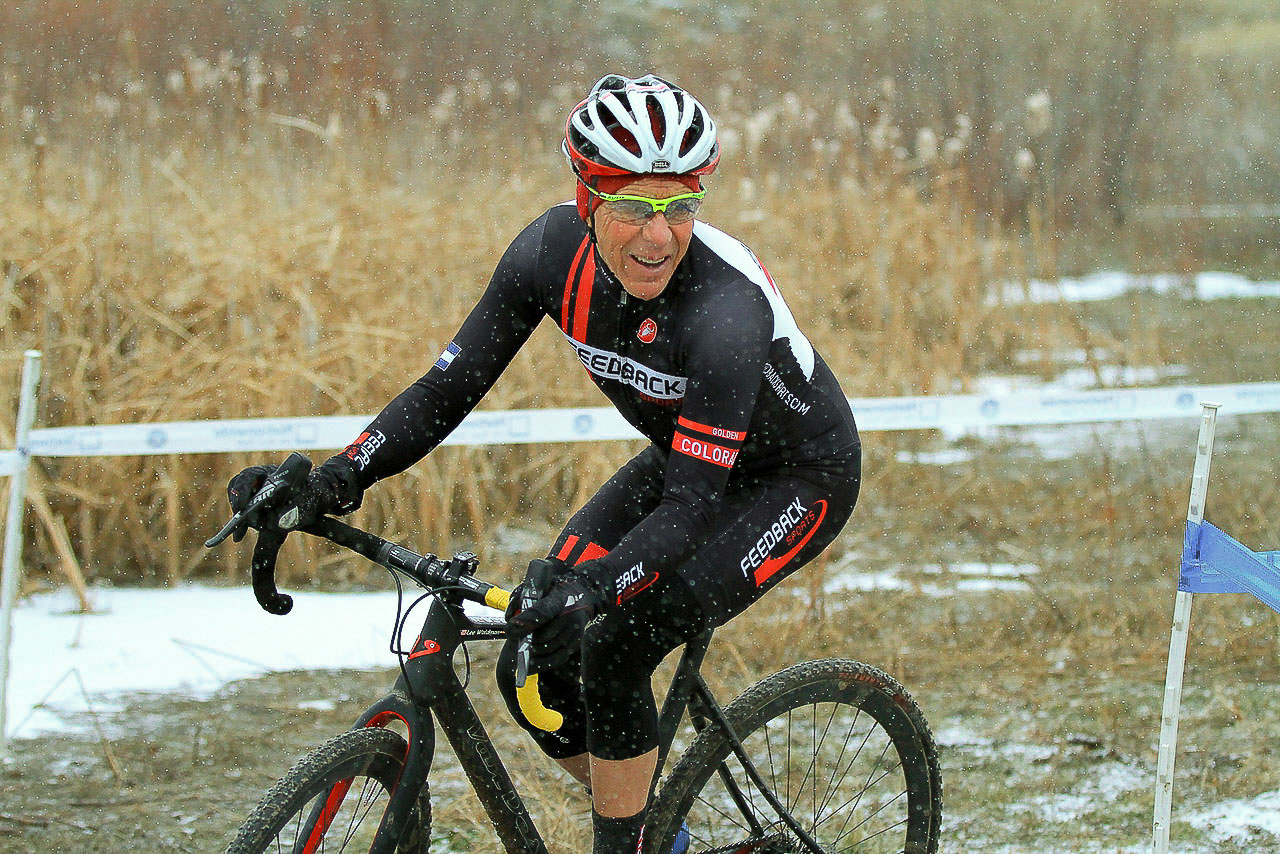
Lee Waldman always finds a reason to smile. © Annette Hayden
With the absence of racing, we have tons of time to train. For the most part, there’s no mountain bike racing, no gravel racing, yet we’re still training. For what? When you roll out of your driveway for a ride, what gives you that purpose to push?
For some of us, and I fit squarely into this category, it’s about maintaining hard-won fitness. Since I don’t have a smart trainer I’m not able to take advantage of the interactive sights that many of you may use. Not sure if I’d even like it, but who knows. Instead, I fall back on following my coach’s advice and plan, telling myself that his plan for me is better than anything I could find elsewhere. So far it’s working.
There are also those riders, and I find myself firmly planted in this category as well, who are counting on a cyclocross season. It might not even be in 2020, but it’s going to come. I’m not only counting on it but actively planning for and training for it. My purpose, and the resulting details of my training plan, are different from those of riders just keeping fit and fighting boredom. Neither one is better than the other, but there is a different purpose for each.
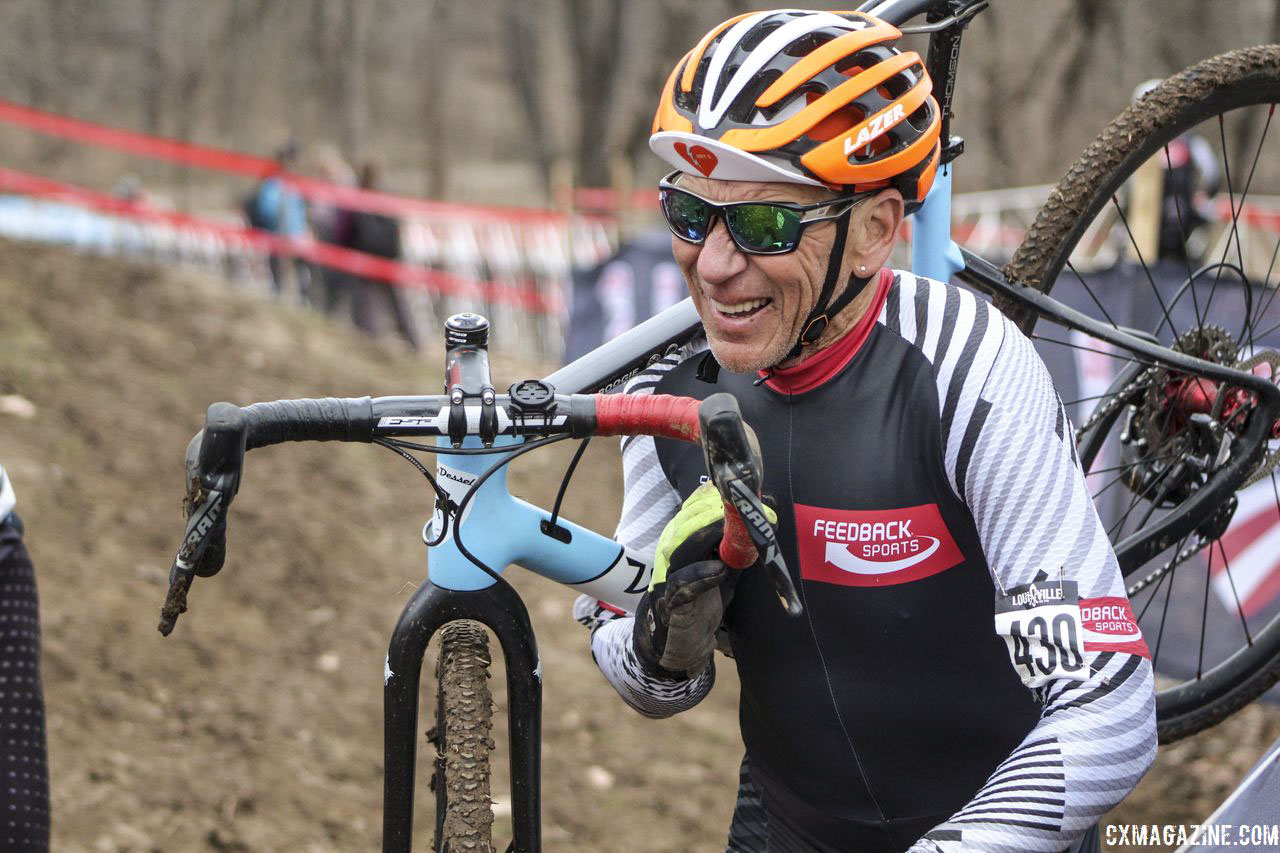
Lee Waldman at the 2018 Louisville Cyclocross Masters Nationals. © Z. Schuster / Cyclocross Magazine
Then there are the riders, and we probably all fall into this category at some point in time, who are fighting the weight battle. Eating out of boredom is prevalent when we are housebound for most of the day. Weight gain is a natural result. Training with that in mind might look a bit different since the focus would be on calories rather than power or heart rate.
So, what’s the point here? Without a plan, don’t simply jump on the trainer! To coin a phrase, you would just be spinning your wheels. If you’re lucky enough to be able to ride outside, don’t roll out of your driveway without knowing why you’re turning the pedals.
Let’s assume you now have your purpose. Why should it matter? Well, for me at least, once I have my purpose firmly in mind, I can tune out all the distractions and focus. How often have you found that half-way through an interval, especially a long one (3 minutes or longer), you find your heart rate and power dropping? Is it just because you’re tired, or have you stopped focusing on the work at hand and your purpose? Either way, you need to bring yourself back. That’s the power of knowing your purpose—it keeps you focused on the goal.
Especially now, when it could potentially be a long time before we turn the pedals in anger in competition again, it’s going to be especially hard. And because it’s hard, it’s important to maintain that element of concentration. Not only does it ensure that you’ll get out of your training rides what you need, but it might just make them more enjoyable.
Let’s be honest here—with the absence of mass start racing in the real world, keeping up the motivation to train is going to get increasingly harder. So, maybe there are days when you just ride for the joy of feeling your body move the bicycle down the road or trail. These days I find that to be as much of a valid purpose for riding and it comes with two added benefits. First, I notice things that I’ve never seen before. I’ve seen beautiful houses that I’ve ridden past for years. There are vistas on the trails I train on that I’ve never taken the opportunity to enjoy because I’ve been so focused on heart rate and watts.
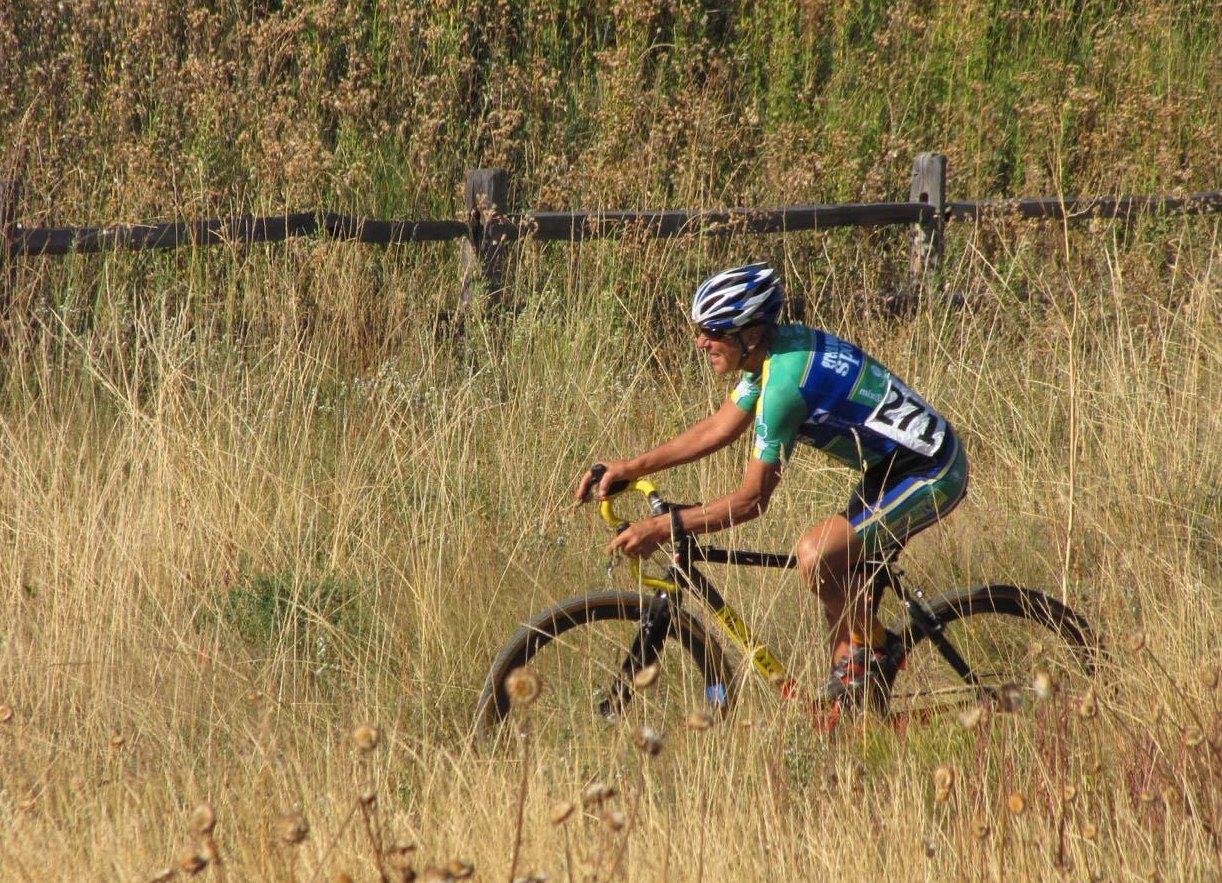
Lee Waldman adds a new meaning to “dancing on the pedals.” © Annette Hayden
“Especially now, when it could potentially be a long time before we turn the pedals in anger in competition again, it’s going to be especially hard. And because it’s hard, it’s important to maintain that element of concentration.”
Secondly, even when riding for enjoyment, I still push myself. Part of the pleasure of riding my bike is that feeling that I’ve left it all on the “road.” Whether I’m doing an interval set or enjoying the place I’m riding, I come home having pushed hard, feeling spent, knowing that my fitness is improving either way. We sometimes call those rides “fartlek” rides—free form. I just call them fun.
Who knows when we’ll race again in the way we used to. Hopefully soon. In the meantime, ride your bike, stay focused and stay safe.
Putting Things in Perspective
We’ve entered an entirely new reality in our lives and in our bike racing. COVID-19 has impacted every aspect of the way we function day-to-day and the prospect of racing cyclocross has not been immune. Just look at the continually growing list of canceled races that have to feel it. If we’re lucky, there might still be smaller local events to feed our addiction. Of course that all depends on where this pandemic goes. Given the growing evidence of a renewed spike, I wouldn’t want to predict the future.
So, what do we do now when every week it becomes more of a challenge to follow a coaching plan? I find myself wondering what I’m training for. The only answer that makes sense is the one that my friend John Ruger shared with me a couple of years ago when he looked at me and said simply, “We’re training for life.” I think that it’s time for a reset. And again, I need to ask what that might look like.
There are days when it feels as if I’ve got contradicting voices whispering in my ears. On one shoulder is perched a Pollyana, with the curmudgeonly Grinch planted on the other. Pollyanna, always the optimist, whispers, “It’s not so bad. You have tons of time to ride your bike. Look at it this way; you might learn to enjoy riding your bike again. Remember those days when you didn’t spend all of your ride time staring at your computer, worrying about heart rate, wattage, what zone you’re in, what zone you should be in, if you’re overtrained…”, and on, and on, and on. Then she sits down with a smile on her face, knowing that she’s helped me develop a new paradigm for riding my bike.
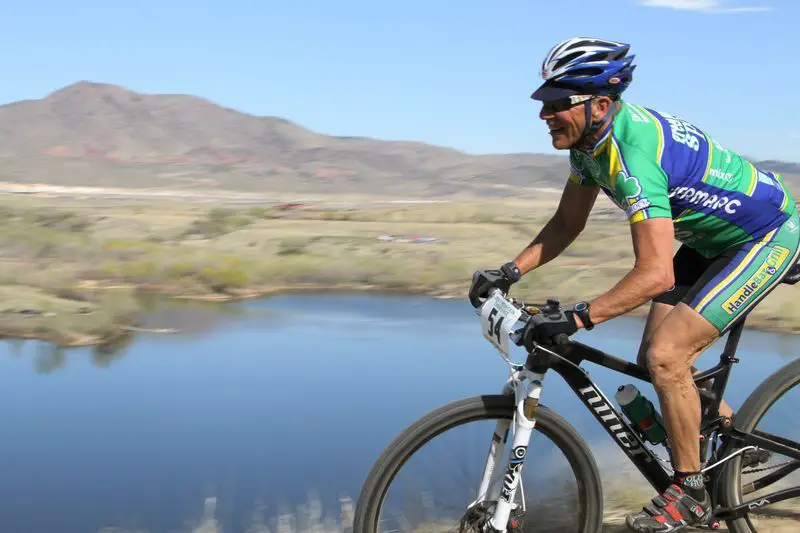
Lee Waldman goes for Poet Laureate. © Lee Waldman
On the other shoulder, now Grinch is having a field day. “If you don’t train you won’t be ready when racing starts again. You’ll gain weight, lose fitness and basically turn into a blob. Don’t forget, you’ll be a year older next year and not the youngest in your category. So, there goes your chance to move up a step or two on the podium at Nationals. Why train if there’s nothing to train for? Why even ride? Give up, buy some bowling shoes or a set of golf clubs,” and he goes on and on and on as well.
What I really want to do at this point is to drown Grinch and listen instead to Pollyanna. It’s the same exact conversation I’ve had with my wife, my training partner John, and with myself. Why continue to train? Why even go for a ride. Why not just sit down with a bowl of ice cream and forget the whole thing?
I’ll tell you why. It’s simple. Because I love the feeling of asking my body to perform, and having it respond. The joy of turning the pedals is, for me, worth it—whether there’s a race on the horizon or not. And now, since there are so few options that we all have to keep ourselves sane, turning the pedals seems to be a really good choice. Since I’m not chasing point or results right now, I’m a bit more relaxed, not focusing on structure, relearning how beautiful most of my rides are and giving myself the opportunity to actually look around to enjoy the view. As I said in an Instagram post a few days ago half-way through a mountain bike ride, “this gives sweet spot training an entirely new meaning”.
The view from my stopping point was amazing. A lovely high alpine meadow stretched in front of me for what seemed like miles. Behind it stood the Rockies, still snowcapped. The almost cloudless sky—a perfect Colorado bluebird blue. Life is good on days like that. I look at my heart rate less; worry about watts less, (I haven’t completely let it go, just lessened the focus), and learned to really love riding the bike.
Some good will hopefully come from this pandemic. If nothing else, maybe we’ll all reset and rediscover exactly why we ride our bikes. It’s not for the results, not for the prizes, not for the points, nor the accolades (especially when you’re 70 years old). It’s for life itself!
This too shall pass. Hopefully sooner rather than later, but it will pass eventually. Then we can return to doing what we all are missing now, racing our cyclocross bikes. But will we return refreshed, excited with a new perspective on riding and racing? Or will we return, resentful of the missed races, the missed opportunities? That decision, whichever it is for you, is entirely in your control. Which feels better, less stressful, more positive? The answer, my friends, might be blowin’ in the wind. (Thanks, Bob!).
In the meantime, go ride your bike.
Oh yeah, don’t forget your mask.
Read more of Lee Waldman’s words of wisdom here and Training Tuesday pieces here.

